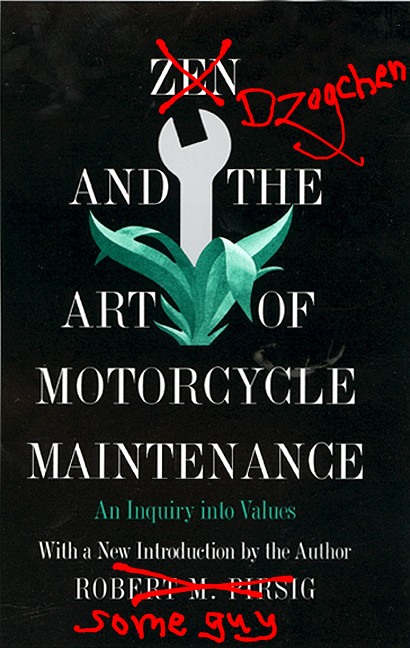
Almost none of us are qualified to practice Dzogchen. As I explained earlier, this is not necessarily a problem, since no qualifications are required to practice a Dzogchen ngöndro. And, there are good reasons to want to study Dzogchen even if we are not qualified to practice it.
Some teachers, however, take the view that Westerners’ interest in Dzogchen is a manifestation of our greedy materialism, spiritual immaturity, impatience, and unhealthy fascination with advanced technology. We want to jump directly to the “highest yana” and feel entitled to do so—whereas Tibetans might only be introduced to it after many years of full-time study and practice of lower yanas. There is some truth in this.
Some teachers—Tibetan and white folks—take the view that, since Westerners think they want Dzogchen but can’t use it, the best thing is to advertise Dzogchen but teach something else. Their books and talks, with the word “Dzogchen” prominent in the title, turn out to be about Madhyamika, or Tantric ngöndro, or Mahayana generation of compassion, or Mahamudra, or practically any other Buddhist topic. I don’t mean that anyone is actually deceptive; once past the title, the teacher generally states the actual subject.
Although the intention is undoubtedly compassionate, I am not sure this pattern is helpful. It leads to all kinds of confusion about what Dzogchen actually is.
It is now quite difficult to find Dzogchen teachings. They are almost drowned out by the mass of other, mis-labelled material.
